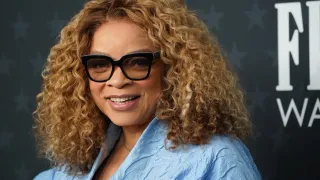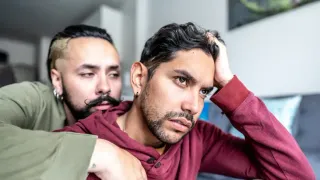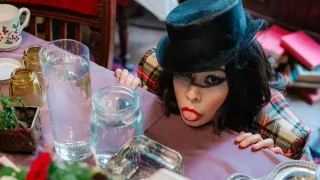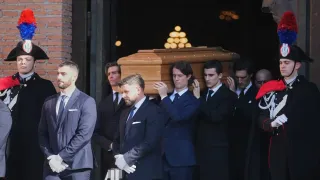October 29, 2018
After Filing for Divorce from Husband, Colton Haynes Celebrates Wedding Anniversary
READ TIME: 1 MIN.
It looks like Colton Haynes and his husband are back together after calling it quits earlier this year.
The "Arrow" star took to Instagram this weekend to celebrate his one year wedding anniversary with Jeff Leatham. The celebrity florist also posted his own tribute to Haynes on his account. In their touching tributes, both men shared photos from their wedding night and writing moving captions.
"Can't believe it's already been 1 yr. since we got married," Haynes wrote. "Happy Anniversary my beautiful husband."
Leatham wrote: "I can't remember what it was like before you, and I don't even know how we got here but maybe that's exactly what I needed. Someone who could make me forget where I came from and someone who could make me love without knowing how to fall."
"Happy Anniversary My Beautiful Husband," he continued. "Life is a beautiful place with you beside me. I LOVE YOU."
Haynes and Latham tied the knot on Oct. 27, 2017 in Palm Springs, Calif. where Kris Jenner officiated the ceremony. But just six months later in May 2018, the "American Horror Story" actor filed for divorce from Leatham.
Things looked up for the pair in July when they were spotted reuniting. Then in September, it was reported they were "working" on their relationship.
Check out the posts below.






